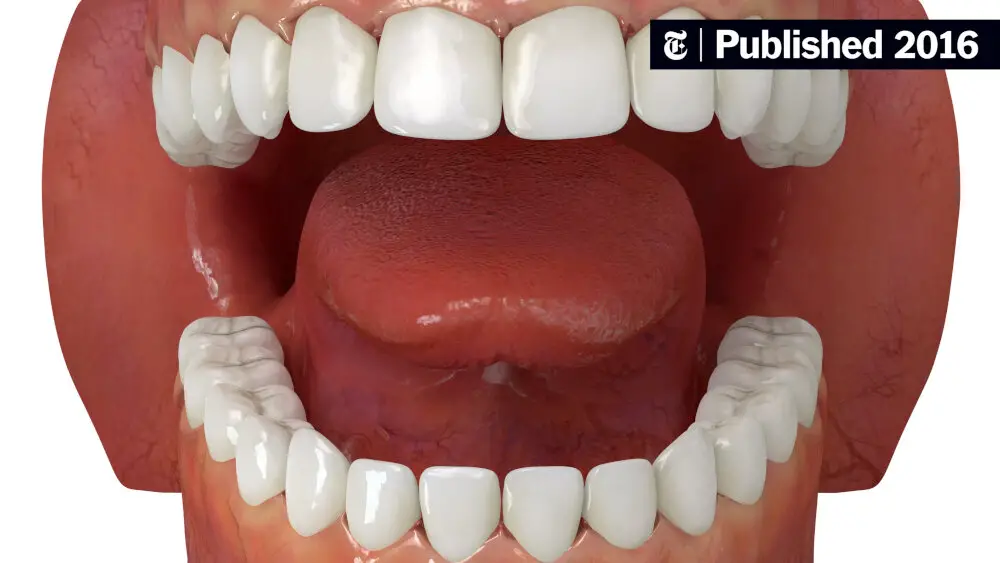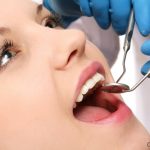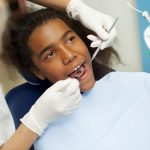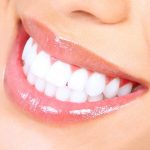Recovery Diet: What to Eat 4 Days After Wisdom Teeth Removal

Recovery after wisdom teeth removal can be a painful and unpleasant experience. However, following a recovery diet can help speed up the healing process and minimize discomfort. The right foods can provide the necessary nutrients to support the body’s natural healing process, while also being gentle on the sensitive areas of the mouth. The first few days after wisdom teeth removal are crucial for the recovery process. It’s important to follow the post-operative instructions provided by your dentist or oral surgeon, including dietary restrictions. While it may be tempting to indulge in your favorite foods, it’s essential to focus on a soft, nutritious, and easy-to-digest recovery diet. This article will guide you through what to eat four days after wisdom teeth removal to help you heal faster and minimize discomfort.
After wisdom teeth removal, it is essential to maintain a healthy and balanced diet to promote faster healing and prevent any infection. The diet should consist of soft and easy-to-chew foods that are high in nutrients such as protein, vitamins, and minerals. Consuming foods that are high in sugar or acid, such as soda, candy, or citrus fruits, should be avoided as they can irritate the surgical site and delay the healing process. It is also recommended to stay hydrated by drinking plenty of water and to avoid using straws as they can cause dry sockets. Additionally, following a proper diet post wisdom teeth removal can also help to manage pain and discomfort, reduce swelling, and aid in the overall recovery process.
Four days after undergoing wisdom teeth removal, it’s crucial to stick to a recovery diet that can help accelerate the healing process and minimize discomfort. At this point, your mouth is likely to be less swollen, and the bleeding should have significantly subsided. However, it’s still necessary to avoid hard, crunchy, or chewy foods that can disrupt the blood clots and irritate the surgical site. Opt for soft, nutrient-dense meals that are easy to swallow and won’t cause any pain or discomfort. This recovery phase is a critical period, and following a strict diet plan can help you recover faster and avoid any complications that may arise.
Soft Foods

After a wisdom teeth removal surgery, it is important to follow a recovery diet that includes soft foods. Soft foods can help reduce the risk of complications such as infection, bleeding, and swelling. They are also easy to eat and will not put any strain on the healing site. Some examples of soft foods that you can eat after wisdom teeth removal include mashed potatoes, scrambled eggs, oatmeal, smoothies, yogurt, and soup. It is important to avoid hard, crunchy, or sticky foods during the first few days after surgery. These foods can cause damage to the surgical site and delay the healing process. You should also avoid drinking through a straw, smoking, and spitting, as these actions can dislodge the blood clot that forms at the site of the extraction. By following a soft food diet, you can ensure a smoother and faster recovery after your wisdom teeth removal surgery.
Following a wisdom teeth removal surgery, it is crucial to maintain a soft and easy-to-chew diet to ensure a speedy and painless recovery. Some soft foods that are easy to chew and swallow include mashed potatoes, oatmeal, scrambled eggs, soup, smoothies, yogurt, applesauce, and pudding. These foods are not only nutritious but also provide the necessary nourishment and hydration required for the body to heal. It is important to avoid any hard or crunchy foods that may irritate the surgical site or cause discomfort. Adhering to a soft food diet for the recommended recovery period will aid in a swift and successful recovery.
It is crucial to avoid hard, crunchy, and spicy foods during the recovery period after wisdom teeth removal. Hard and crunchy foods such as nuts, chips, and popcorn can dislodge the blood clot that forms in the tooth socket, leading to a painful condition known as dry socket. On the other hand, spicy foods can irritate the site of extraction and delay the healing process. It is recommended to opt for soft and bland foods such as mashed potatoes, smoothies, and soups during the initial four days after surgery and gradually reintroduce solid foods as the healing progresses. By following these dietary guidelines, patients can promote faster healing, reduce discomfort, and prevent complications.
When preparing soft foods for the first few days following wisdom teeth removal, it’s important to keep a few key tips in mind. First and foremost, opt for foods that are easy to chew and swallow, such as mashed potatoes, soups, smoothies, and pudding. Be sure to avoid any foods that are tough, crunchy, or require a lot of chewing, as this can irritate the surgical site and slow down the healing process. Additionally, consider incorporating foods that are high in protein and nutrients, such as Greek yogurt, scrambled eggs, and pureed vegetables, to support your body’s healing process. Lastly, be sure to maintain good oral hygiene by gently rinsing your mouth with salt water after eating and avoiding any foods that are too hot or too cold, as this can increase sensitivity and discomfort.
Nutritious Options

After wisdom teeth removal, it is crucial to consume nutritious options to aid in the healing process. Opting for nutrient-dense foods can reduce the risk of complications and promote a speedy recovery. Some nutritious options include soft foods, such as smoothies, soups, and mashed potatoes. These foods offer the necessary nutrients while being easy to eat without causing discomfort or damage to the surgical site. Furthermore, incorporating fruits and vegetables into the recovery diet can provide essential vitamins and minerals that support the immune system and reduce inflammation. Foods like avocados, berries, and leafy greens are rich in antioxidants and anti-inflammatory compounds that can aid in the healing process. Combining these foods with lean protein sources, such as chicken, fish, and eggs, can also promote tissue repair and aid in the recovery process. Overall, selecting nutritious options can speed up the healing process, reduce discomfort, and support the body’s natural healing process after wisdom teeth removal.
During the recovery period after wisdom teeth removal, it is important to maintain a healthy and nutritious diet that is gentle on the mouth. Soft foods that are rich in nutrients can help to promote healing and prevent infection. Some examples of nutritious soft foods include oatmeal, yogurt, scrambled eggs, mashed sweet potatoes, pureed soups, smoothies, and avocado. These foods are high in protein, vitamins, and minerals that can support the body’s healing process and provide energy to the patient. It is important to avoid hard, chewy, or spicy foods during the recovery period, as they can cause pain or discomfort in the mouth. A balanced and varied diet of nutritious soft foods can help to ensure a speedy recovery after wisdom teeth removal.
Maintaining a balanced diet is crucial for overall health and wellbeing, but it becomes even more important when recovering from dental procedures such as wisdom teeth removal. A balanced diet provides the necessary nutrients and vitamins the body needs to heal and recover efficiently. It also helps to reduce the risk of infection and complications that can occur during the recovery process. A well-balanced diet should include a variety of fruits, vegetables, lean protein sources, and whole grains. Additionally, it’s important to avoid foods that are high in sugar, salt, and saturated fats, as these can hinder the healing process and cause inflammation. By following a balanced diet, patients can ensure a smooth and speedy recovery after wisdom teeth removal.
Incorporating protein, fiber, and vitamins in soft foods is essential for maintaining a healthy recovery diet after wisdom teeth removal. To increase protein intake, incorporate foods such as Greek yogurt, cottage cheese, and scrambled eggs. These foods are not only soft and easy to eat but also rich in protein. To add fiber to your diet, try consuming foods such as applesauce, mashed sweet potatoes, and pureed soups. These foods are easy to swallow and provide the necessary fiber for a healthy digestive system. Lastly, to obtain essential vitamins, incorporate soft fruits such as bananas and avocados, and well-cooked vegetables such as carrots and spinach. These foods are not only soft but also packed with essential vitamins for a speedy recovery. By incorporating these nutrients into your soft food diet, you can ensure a healthy and speedy recovery from wisdom teeth removal.
Hydration

Hydration is essential during the recovery period after wisdom teeth removal surgery. Drinking enough fluids is crucial as it helps to keep the body hydrated, flush out toxins, and prevent dehydration. During the first few days after your surgery, it is recommended to consume clear fluids such as water, coconut water, and electrolyte drinks to minimize the risk of infection and reduce inflammation. Keeping the body hydrated also helps to promote healing and reduce the risk of dry socket, which is a painful condition that can occur after wisdom teeth removal. It is important to avoid drinking alcoholic beverages, caffeine, and carbonated drinks as they can cause dehydration and increase the risk of complications. In addition to drinking fluids, consuming foods with high water content can also help to keep the body hydrated. Fruits such as watermelon, strawberries, and grapefruit are excellent sources of hydration as they contain high amounts of water. Consuming soups and broths is also an excellent way to stay hydrated and provide the body with essential nutrients during the recovery period. However, it is important to avoid consuming hot liquids during the first few days after surgery as they can cause bleeding and increase the risk of complications. Overall, staying hydrated during the recovery period after wisdom teeth removal is crucial for promoting healing, reducing inflammation, and minimizing the risk of complications.
Staying hydrated is crucial for overall health, but it becomes even more important after wisdom teeth removal. When you undergo a dental procedure, your body goes through a lot of trauma, and dehydration can slow down the healing process. Drinking plenty of water and other fluids can help flush out toxins and promote tissue regeneration, reducing inflammation and pain. It can also prevent complications like dry socket, which can be extremely painful and delay the healing process. In addition to water, you can also consume soups, broths, and smoothies to stay hydrated and nourished without putting too much pressure on your healing mouth. So, make sure to drink enough fluids and stay hydrated to speed up your recovery after wisdom teeth removal.
After wisdom teeth removal, it’s important to stay hydrated and maintain proper nutrition, which can be challenging due to pain and swelling. Recommended fluids include water, which helps flush out toxins and reduce the risk of infection, and herbal tea, which can have anti-inflammatory properties and promote relaxation. Broth or bone broth is another good option, as it provides important nutrients like collagen and can be soothing to the throat. Avoid carbonated drinks, as they can irritate the gums, and stick to clear liquids or smoothies made with soft fruits like bananas or avocados. Drinking enough fluids is crucial to prevent dehydration and aid in the healing process, so be sure to sip frequently throughout the day.
Proper fluid intake is crucial during the recovery period after wisdom teeth removal. To avoid dehydration, it is recommended to consume at least eight glasses of fluids per day. However, it is important to avoid using straws or drinking carbonated drinks for at least a week following surgery, as the sucking motion can dislodge blood clots and delay the healing process. Instead, opt for lukewarm water, herbal teas, fruit juice, and smoothies that are rich in vitamins and minerals. Additionally, avoid consuming hot drinks and foods as they can irritate the surgical site. Following these tips will ensure a smooth and comfortable recovery.
Foods to Avoid

After undergoing wisdom teeth removal surgery, it is crucial to follow a strict diet to ensure a speedy recovery. One of the most critical aspects of the recovery diet is avoiding certain foods that can cause pain, inflammation, and even infection. The first food group to avoid is anything crunchy or hard, such as chips, nuts, and popcorn. These foods can easily get stuck in the open sockets, causing discomfort and increasing the risk of infection. Additionally, they can damage the surgical site and prolong the healing process. Another type of food to avoid after wisdom teeth removal is anything that is too hot or too cold. Anything that is not at room temperature can cause sensitivity and pain in the surgical area. Hot foods and drinks can also increase blood flow to the area, causing swelling and discomfort. On the other hand, cold foods and drinks can cause a numbing sensation that masks the pain, leading to overuse of the surgical site and slowing down the healing process. It is best to stick to lukewarm or room temperature foods and drinks for the first few days after surgery.
After wisdom teeth removal, it’s important to maintain a soft and easy-to-digest diet to promote healing and avoid any complications. To prevent any further discomfort or damage to the surgical site, it’s best to avoid hard, crunchy, and spicy foods. Some examples of foods to avoid during the recovery period include nuts, seeds, popcorn, chips, raw vegetables, tough meats, and spicy sauces. Additionally, it’s recommended to steer clear of foods that require excessive chewing or are difficult to swallow, such as sticky candies or large pieces of bread. By following these guidelines, you can ensure a smooth and speedy recovery after your wisdom teeth removal procedure.
After wisdom teeth removal, some foods should be avoided to ensure a smooth and fast recovery. Foods that are hard, crunchy, or sticky, such as nuts, chips, popcorn, and chewing gum, should be avoided as they can irritate the extraction site and cause bleeding. Spicy and acidic foods, such as tomato sauce, citrus fruits, and hot peppers, should also be avoided as they can cause discomfort and pain. Alcohol and smoking should be avoided for at least 24 hours after surgery as they can delay the healing process and increase the risk of infection. Instead, soft and cool foods such as mashed potatoes, smoothies, and yogurt can be consumed to provide the necessary nutrients and promote healing.
Proper diet post wisdom teeth removal is crucial to ensure a speedy recovery and minimize the risk of complications. After the surgery, the mouth is tender, and the sockets need to heal, which can take several days. Hence, a soft, nutritious, and balanced diet is recommended to facilitate healing, provide energy, and maintain overall health. Foods high in vitamins, minerals, and protein, such as yogurt, smoothies, soup, oatmeal, and mashed potatoes are recommended. Avoiding hard, crunchy, spicy, and acidic foods, as well as smoking and drinking through a straw, can prevent irritation, infection, and dry socket. Staying hydrated and following the dentist’s instructions can help ensure a smooth recovery and return to normal eating habits in no time.
To ensure a successful recovery diet after wisdom teeth removal, it’s important to follow some final tips and recommendations. Firstly, it’s essential to stay hydrated by drinking plenty of water and avoiding alcohol and caffeine. Secondly, opt for soft and easily digestible foods such as smoothies, soups, and mashed potatoes. These foods will help to reduce discomfort and aid in the healing process. Additionally, avoid hot and spicy foods, as they can irritate the healing wounds. Finally, don’t forget to take any prescribed medication as instructed by your dentist or doctor. By following these tips and recommendations, you’ll be able to ensure a smooth and successful recovery after your wisdom teeth removal.
Conclusion

In conclusion, following a recovery diet after wisdom teeth removal is crucial to ensure a speedy recovery, minimize discomfort, and prevent complications. The recommended foods are those that are soft, easy to chew, and nutrient-dense. These include soups, smoothies, mashed potatoes, yogurt, and cooked vegetables. It is also essential to avoid hard, chewy, or spicy foods, as they can irritate the surgical site and delay healing. By sticking to a recovery diet and following your dentist’s instructions, you can minimize pain, reduce the risk of infection, and get back to your regular diet in no time. Remember, a healthy diet is not only essential for oral health but also for overall well-being.






